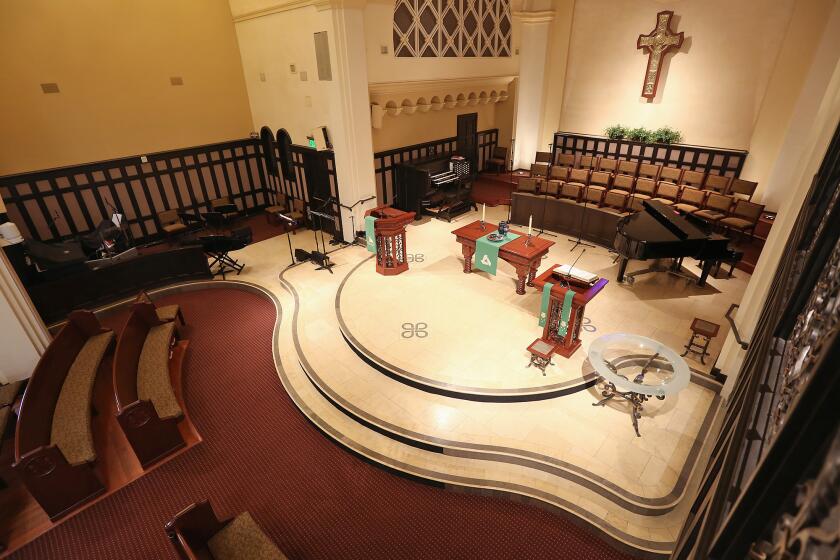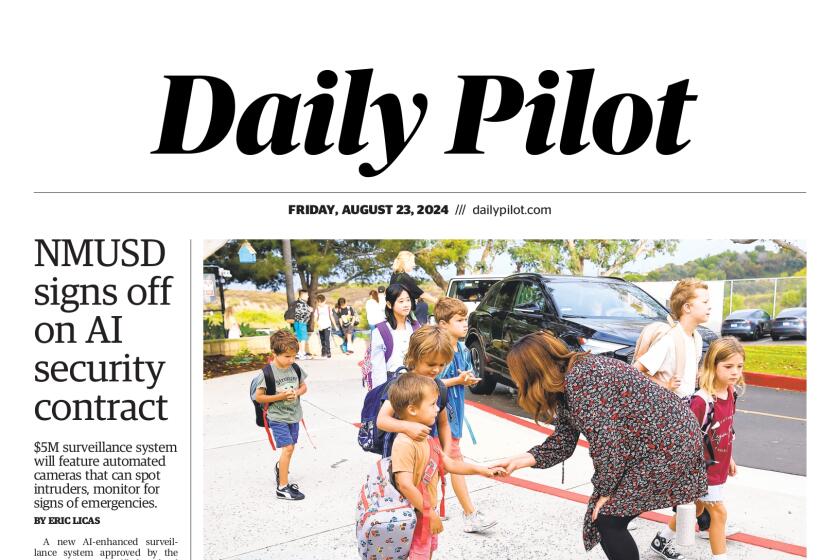COMMUNITY COMMENTARY:
It’s just business.
That’s how Huntington Beach Conference and Visitors Bureau seems to deflect the criticism of how it has handled the Surf City USA trademark issue. After all, it’s just doing what the city charged it to do, promote Huntington Beach as an overnight destination for meetings and visitors. And this year, the city gave the bureau a million dollars to accomplish its task.
The deal is, the city gets about $6.5 million a year from a 10% tax placed on every hotel room bill. Then the city assesses another 1%, which it forwards to the bureau. So, more hotel stays, more money for the city and for the bureau.
Certainly there’s nothing wrong with this, as long as the residents and merchants are willing to accept the inevitable increase in crowds, traffic and other demands on city services, in return for the greater municipal revenue and more customers for local businesses.
But to guard against the evolution of entrepreneurial exuberance into governmental greed, it’s important the public be involved in approving the policies for levying such fees, and kept well-informed as to how those revenues are spent.
So months ago, when the bureau’s chief executive Doug Traub reportedly said Santa Cruz merchants should be made to pay more than $1 million for attacking the city’s Surf City USA trademark, but any settlement of the litigation would be kept confidential, a red flag went up.
Why? What should be confidential about a trademark infringement case? Besides, California law demands public agency settlements be disclosed and the terms announced in a public meeting. Even more important is the question, when did the people of Huntington Beach get a chance to weigh in on whether to sue those merchants for a million dollars?
Sure enough, when a settlement was announced in January, with the bureau claiming victory, Traub said the Federal Court ordered the settlement agreement to remain confidential.
But from the evidence, it is very hard to figure out just what the bureau won.
By comparing the wording on Santa Cruz’s old T-shirt logo, “Surf City Santa Cruz California USA,” which the bureau claimed infringed on its trademark, to the new T-shirts bearing the settlement-approved language, “Surf City Santa Cruz California USA Original,” one has to question the difference made by adding just one word.
In politics, secrecy breeds distrust, and the people deserve to know what was decided by this protracted litigation and what public money was spent to gain the outcome. In this way, the people can determine whether their public officials performed properly, and whether or not they should retain their public office.
Traub has claimed the lawsuit didn’t cost the public a dime; that “the costs have been borne entirely by Chubb Insurance Companies.”
Well, one has to question why a private insurance company would foot the bill for litigation it had no interest in. Does the retainer agreement contain some “quid pro quo?” And is it possible that all the extra time and effort Traub admits the bureau’s four full-time employees gave to producing and scanning thousands of pages of evidence may have cost the public dearly?
We don’t know the answers to these questions, because the bureau refuses to produce any documents regarding the settlement agreed to. It even refused to produce what it claims is the Federal Court order requiring the bureau not to release the settlement terms.
So after six weeks of asking and waiting, we threatened a Public Records Act lawsuit to force the bureau and the city to disclose the settlement agreement.
But the day before we were to file that suit, the bureau went back to Federal Court, asking to be ordered not to release the settlement agreement. In the alternative, the bureau asked the court to release it from its contract with the Santa Cruz merchants, in which the bureau agreed to keep the terms confidential.
That Federal Court hearing is scheduled for April 25. Just more money wasted by the bureau in its effort to keep the public in the dark. Sure makes you wonder just what’s so bad or embarrassing that it had to be kept secret.
RICHARD P. MCKEE is president emeritus of Californians Aware.
All the latest on Orange County from Orange County.
Get our free TimesOC newsletter.
You may occasionally receive promotional content from the Daily Pilot.



